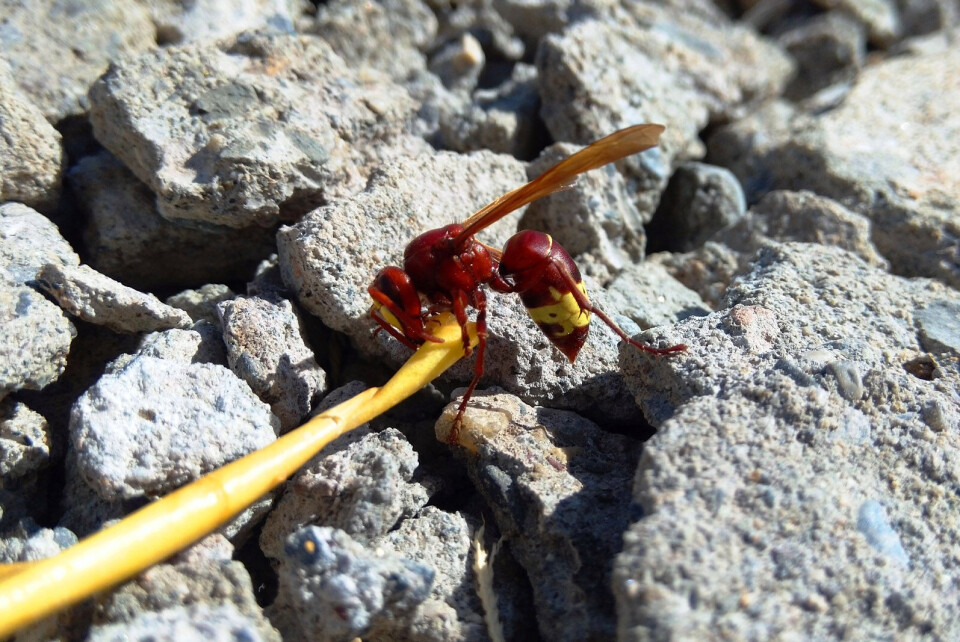-
Travellers risk extra costs under new Eurotunnel ticket rule
Some fare options are less flexible and less forgiving of lateness
-
May will be difficult month for train travel in France, warns minister
Two major train unions are threatening to strike and are ‘not willing to negotiate’, he says
-
Larousse dictionary adds 150 new French words - which ones do you know?
The new words come from trends in sport, nature, leisure, food, medicine, and the rest of the French-speaking world
Researchers use GPS trackers to stop new hornet spreading in Marseille
The oriental hornet is different from the Asian hornet and can be identified from red colouring with yellow markings on the front of its face and the third and fourth abdomen sections

Researchers are attaching mini-GPS trackers to oriental hornets in Marseille to find – and destroy – their nest.
It is the first time the hornets, highly dangerous to bees, have been identified in France.
Scientists from Ecotonia lab in Eguilles, Bouches-du-Rhône, were studying flora and fauna when they came across them.
They think they might have arrived by boat as they were found near a stream leading to the city’s port.
They call the hornet a “formidable predator of bees” in a paper for the journal Faunitaxys.
A first for France
The hornets are present in Spain, but it is thought these could be the only ones in France.
Ecotonia director Gérard Filippi said bee numbers are down around 50% over the last 10 years and are not recovering.
Bees are vital for their role in pollinating plants and crops and are already under threat.
Hornets are one cause, including the Asian variety, which arrived in France in 2004. Another is pesticides.
He said: “We’ve been looking for the nest but it’s complicated and we’ve not found it. Now we will be sticking little GPS markers to the hornets’ backs. We are trying to avoid any development of colonies.
Read more: Is mairie responsible in France for removing hornets’ nest?
“The hornet is capable of spreading fast and creating nests of several thousand.
“We think we’re at the start, that there are around 100 or so hornets at the site.
“It’s certainly as dangerous as the Asian hornet but that is now so widespread, we can’t do anything about it. If we find the nest, we can eradicate it before they spread. There will be a number of queens that could create new colonies and growth could be exponential.
“It would be an extra predator for the bees, on top of existing difficulties, which would be really bad news for the whole ecosystem. Hornets can destroy a swarm of bees in a few hours.”
He said a law banning the most harmful pesticides, neonicotinoids, has not had much impact on bee populations.
France has re-authorised their use for sugar beet until 2023.
Dr Filippi added that pesticide producers are a powerful lobby in France, so it is difficult to make sure bans are enforced.
Related stories
Bee-eating oriental hornet discovered in Marseille, a first in France
‘No stings yet!’: Feedback from beekeeping beginners in France
























